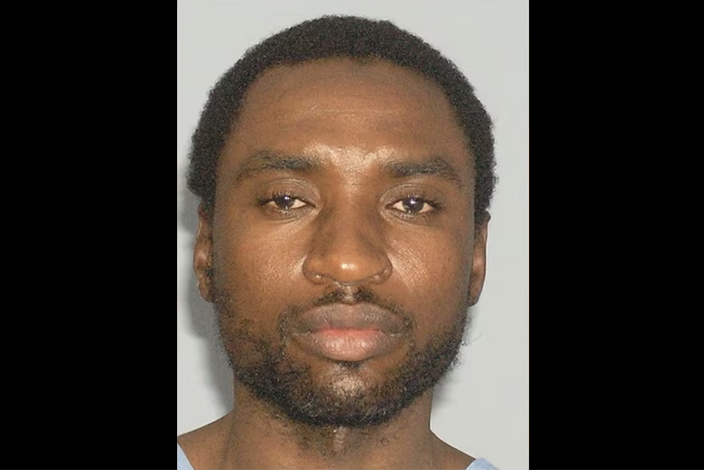About a month after Osama bin Laden was killed in a 2011 raid on his compound in Pakistan, the FBI got an unusual call from Italian authorities about a 34-year-old man who had just arrived on a refugee ship from Libya. The man claimed to be an al-Qaeda operative who had been responsible for the deaths of American soldiers in Afghanistan and demanded to speak with U.S. officials.
"What I want to tell you is: I want to give you a history of how I entered into terrorism," said a handwritten note from Spin Ghul, the jihadist insurgent who became the first person tried in U.S. criminal court for killing American service members on a foreign battlefield.
MORE: Sinking of SS United States to be livestreamed by using drones and underwater cameras
The unprecedented effort to prosecute Ghul is told at length for the first time in "Race Against Terror," a new book written by CNN anchor Jake Tapper, who grew up in Philly's Queen Village and stopped in the city earlier this month as part of his book tour.
"I'm a big fan of police procedurals like 'CSI' or 'Law & Order,'" Tapper said before his appearance at the Suzanne Roberts Theatre on South Broad Street. "This story was about the sleuthing and how they built this case."
Tapper last wrote about the war in Afghanistan in "The Outpost," his book-turned-movie about a harrowing battle between U.S. soldiers and the Taliban in 2009.
Despite his vast knowledge of global politics and U.S. intervention in the Middle East, Tapper had never heard of Ghul's case until he ran into one its leading federal prosecutors at a paintball birthday party for his son a few years ago.
"I had just never heard anything like this, especially on an international scale," Tapper said.
A dilemma for the U.S. government
Ghul, a man of Nigerien descent, grew up poor in Saudi Arabia and waded into the world of radical Islamic extremism by the time he was a young adult. Weeks before the Sept. 11 terrorist attacks in 2001, he traveled to an al-Qaeda camp in Pakistan to be trained under some of Bin Laden's top deputies.
When Ghul was detained in Italy, nearly a decade into America's costly and politically fractious "war on terror," U.S. authorities immediately flew out to hear him tell the story of how he had participated in a 2003 ambush that killed two American soldiers and wounded several others outside an Army base near the border of Pakistan.
"The U.S. government was faced with a dilemma when the Italians reached out and said that they had picked up Spin Ghul," Tapper said. "What do the Americans do? Do they work really hard and try to build a case against him, which is the only way the Italians will hand him over, if he's going to be tried in a criminal court, or do they just move on and hope Spin Ghul doesn't do anything?"
Ghul had just spent six years in a Libyan prison, where he had been detained and tortured for his involvement in a foiled plot to carry out attacks in Europe. He was freed in 2011 amid the chaos of the Arab Spring, which led to the overthrow of Libya's authoritarian ruler Muammar Gaddafi, and Ghul told the FBI he originally had fled to Libya because his plan to bomb the American embassy in Nigeria was thwarted by the arrest of a co-conspirator.
 Provided Image/U.S. Attorney's Office
Provided Image/U.S. Attorney's Office
Spin Ghul, above, became the first person tried in U.S. criminal court for killing American soldiers on a foreign battlefield. Ghul was convicted of multiple terrorism offenses in 2017 and sentenced to life in prison.
American counterterrorism officials were stunned by Ghul's candor but skeptical of whether they could mount enough evidence to verify his claims and try him in court, let alone convince the Italians to extradite him.
At the time, the Obama administration was seeking to abandon the heavy-handed tactics of the Bush years when dozens of suspected terrorists were locked up indefinitely at Guantanamo Bay and at other CIA black sites. The use of torture during interrogations had tainted valuable evidence, derailing the viability of cases in the slow-moving U.S. military courts. There was no blueprint for handling Ghul's story, and U.S. allies in Europe had grown wary of America's record with detainees.
If U.S. officials didn't move quickly, an avowed terrorist would likely get a slap on the wrist in Italy and then be let loose.
"I wanted to write it like it's a thriller so that people are just compelled to read it," Tapper said of his new book, whose style draws from his approach to writing novels. "Sometimes nonfiction can feel like homework, and I didn't want that."
 Ryan Brandenberg/World Affairs Council of Philadelphia
Ryan Brandenberg/World Affairs Council of Philadelphia
Jake Tapper is shown above with Lauren Swartz, president and CEO of the World Affairs Council of Philadelphia, at the Suzanne Roberts Theatre on South Broad Street for an Oct. 15 stop on his 'Race Against Terror' book tour.
"Race Against Terror" is a gripping examination of the carnage of war and the complexities of prosecuting terrorists. Ghul grew increasingly uncooperative, erratic and hostile toward prosecutors, his defense team and a New York judge who felt ambivalent about the "show trial" optics of the case being tried in federal court in New York. Ghul became so defiant that he viewed the proceedings on a video monitor from his detention facility.
Ghul's status as an unlawful enemy combatant, rather than a soldier fighting under a sovereign flag, posed unique challenges for the prosecutors who had to pin down the exact battle in question and interview surviving service members to substantiate what took place that day in Afghanistan in April 2003. Evidence against Ghul was collected from multiple countries, often under harrowing circumstances, to prove that he was both telling the truth and mentally competent to stand trial in a U.S. court where witnesses would be asked to relive a battlefield nightmare. One of the surviving veterans had kept a key piece of evidence — a Quran that contained Ghul's fingerprints — that proved invaluable during the trial.
"It is difficult to call up these service members and ask them to talk about the worst day of their lives," Tapper said. "I think that it was, to a large extent, a comforting thought that the government went to all the effort to file the case against Ghul and try him in court. … But the truth is, we as a country send these men and women off to war and even those who emerge from battles without physical scars often have deeply traumatized emotional scars."
Trump's 'devaluing of expertise' carries risks
Ghul was convicted of multiple terrorism offenses in March 2017, less than two months into President Donald Trump's first term. His two-week trial began the same day Trump signed an executive order blocking citizens from six predominantly Muslim countries from entering the United States.
Ghul was ultimately sentenced to spend the rest of his life at a supermax prison outside Denver, the same facility that has housed the likes of the Unabomber Ted Kaczynski, Mexican drug lord El Chapo, Oklahoma City bomber Timothy McVeigh and Boston Marathon bomber Dzhokhar Tsarnaev.
Tapper said the Ghul case may become a template for prosecuting terrorists, although there are still misgivings about affording them the same protections U.S. citizens are granted in court. Earlier this year, the Trump administration announced it will try an ISIS-affiliated terrorist in U.S. criminal court for his alleged role in the 2021 Abbey Gate suicide bombing at Kabul International Airport during the U.S. withdrawal from Afghanistan. That attack killed at least 182 people, including 13 members of the U.S. military.
"I do think the effort can be replicated effectively to lock these people up forever," Tapper said. "I will say that, at the same time President Trump is doing that, his administration is ridding the Justice Department of expert counterterrorist prosecutors."
Tapper noted that George Toscas, one of the key Justice Department figures involved in the Ghul case, has been sidelined by the Trump administration for signing off on the warrant to investigate classified documents that Trump kept at his Mar-a-Lago estate in Florida. And Michael Ben'Ary, another top national security prosecutor from the Eastern District of Virginia, was fired earlier this month after a social media post from a pro-Trump influencer accused Ben'Ary of resisting the recent indictment of former FBI Director James Comey. Ben'Ary left a scathing letter on his door warning about the dangers of the Trump administration's actions across the Justice Department and the FBI.
"The devaluing of expertise and the placing of politics above all else — specifically, support for Preisdent Trump — carries enormous risks," Tapper said. "One of things this book proves is that this stuff isn't easy. It's not easy to build a case against a terrorist. It takes a huge effort and a lot of experts who know what they're doing."
Tapper hopes "Race Against Terror" will raise deeper questions about how extremism takes root and what Ghul's story can tell us about a world that's rife with it.
"I don't look at him like he's all that different from anyone who carries out acts of violence for any cause, whether it's Luigi Mangione or anyone else," Tapper said, referencing the American who's accused of killing the CEO of UnitedHealthcare. "These are zealots. They have overinflated senses of their roles in history. And where zealotry ends and insanity begins, I don't know. But I think that Spin Ghul is not really that unrecognizable. We have zealots among us all the time."
Have any thoughts?
Share your reaction or leave a quick response — we’d love to hear what you think!






